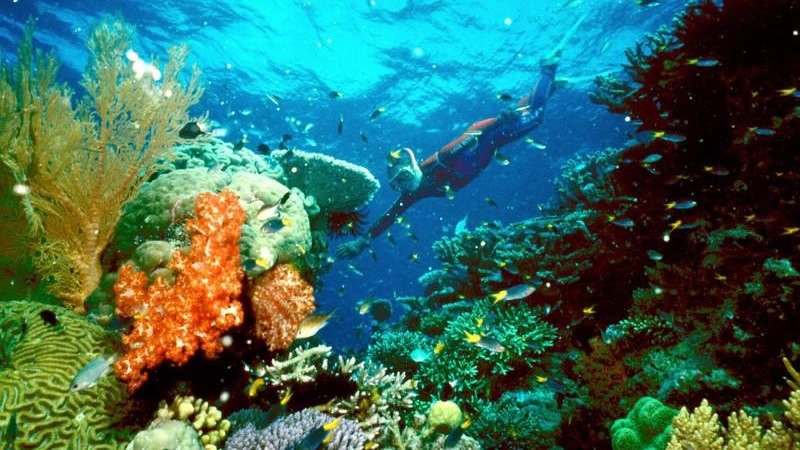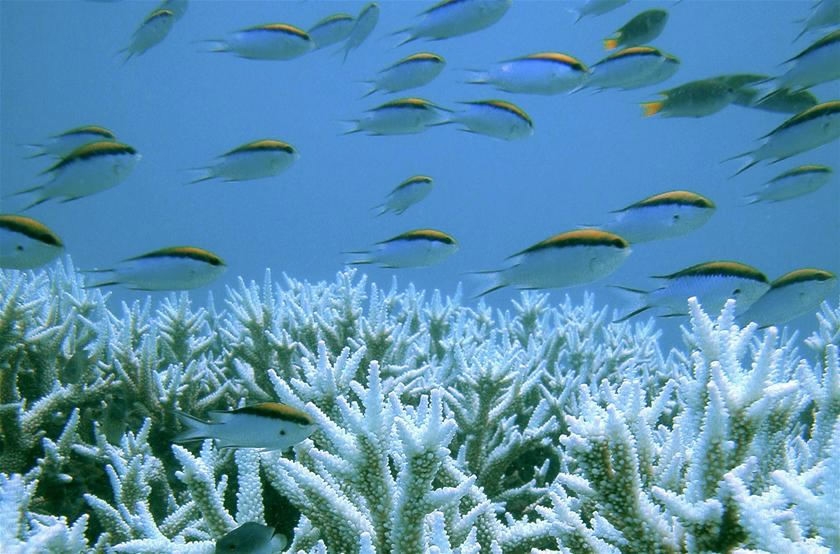
Tech & Sci
19:03, 19-Oct-2017
Researchers: Warmer oceans set to hit global marine diversity

Climate change and warmer oceans are likely to change reef ecosystems worldwide, reducing the diversity of invertebrates such as crabs, lobsters and sea urchins,found a recent Australia-led research team.
As the oceans get warmer, fish, which seem to be better predators in warmer waters, will extend their range from the equator to feed in colder latitudes where the number of large invertebrates is higher, Australia's Institute for Marine and Antarctic Studies said in a media release on Thursday.
The findings were made using data collected by a research team under the institute, which is based at the University of Tasmania.

Climate change and warmer oceans are likely to change reef ecosystems worldwide, according to a team of researchers from Australia's Institute for Marine and Antarctic Studies /Reuters Photo
Climate change and warmer oceans are likely to change reef ecosystems worldwide, according to a team of researchers from Australia's Institute for Marine and Antarctic Studies /Reuters Photo
"As fish extend their range further from the equator with warming water, their advantage as predators will affect the abundance and diversity of large mobile invertebrates," said the institute quoting the study's lead author, Professor Graham Edgar.
"Broad changes will likely spread across the ecosystem, affecting human activities such as fishing."
The "tropicalization" of marine life is already happening in southeastern Australia and Tasmania, "but similar effects have not yet been detected in New Zealand," he said.
The southern island state of Tasmania exports much of Australia's seafood, including crustacean and mollusk products, to Asian consumers, industry figures showed.
Source(s): Xinhua News Agency

SITEMAP
Copyright © 2018 CGTN. Beijing ICP prepared NO.16065310-3
Copyright © 2018 CGTN. Beijing ICP prepared NO.16065310-3